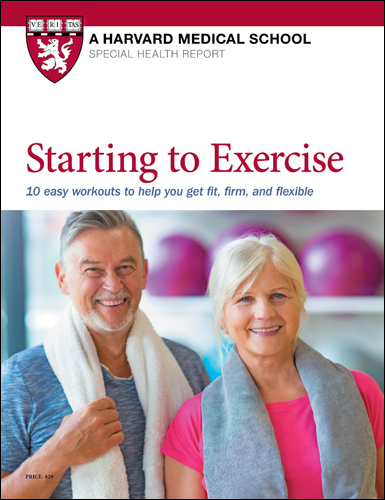Fitness advice from super seniors
Athletes competing in this year's National Senior Games share how they stay active, healthy, and driven.

This year, athletes over age 50 from across the country will gather in Ft. Lauderdale, Fla., to compete in the National Senior Games (NSG) — the world's largest multi-sport event for seniors.
This biennial event showcases top amateur athletes competing in 20 Olympic-style events. These "super seniors" have a rich and varied background. Many have trained in their sport for decades, while others have returned after a long sabbatical. A few have only recently picked up their endeavor.
Even so, they face the same obstacles you do: seeking motivation, overcoming injuries and setbacks, and finding the best exercise routines to meet their goals. We spoke with three decorated athletes about what they have learned along their journey — and what you can learn from them.
Philipp Djang, swimming
Djang, 66, has won 34 gold and eight silver medals and set 21 NSG records across four age groups.
Move every day. Do something daily that makes you tired. I make exercise a regular habit, like brushing my teeth. It doesn't always have to be the same activity, either, because variety is the spice of life.
Find a village. I derive significant pleasure and happiness from seeing my friends in the pool and gym. When you have a group of people who have the same experience, the shared bond creates a synergistic social effect and can be the basis for lifelong friendships.
Learn the differences in pain. There are many types and levels of pain. Good pain is the burn from trying as hard as you can. A bad pain, like a sprain, feels much different. Learning how to distinguish between them and realizing how much you can safely push yourself is part of better understanding how your mind and body function.
Vary your workouts. The concept of periodization is essential in my training. [Periodization involves adjusting variables during workouts to improve performance and constantly challenge the body.] For instance, I vary my distance and intensity — fast, short swims to improve speed and long, slow swims to focus on technique.
Love what you do. I set competition goals, and sometimes I achieve them. But if I don't, that is okay, and it's no reason to stop doing what I love. First and foremost, always do something because it makes you feel better.
Vince Obsitnik, running
The 83-year-old Obsitnik has run marathons since his mid-50s. He completed the Boston Marathon in under four hours and did a marathon in the Slovak Republic where he served as a U.S. Ambassador.
Schedule your workouts. I put my training days in the calendar, and then that's it. No turning around, no matter how sleepy or unmotivated I may be.
Stretch it out. I firmly believe in stretching before and after workouts. Someone put me on to this about 30 years ago, and I still follow it. I have nine stretches that cover both the upper and lower body. Do only mild stretching before the workout, and save the more vigorous stretching for after you finish. Hold each stretch for about 30 seconds.
Challenge yourself. Facing challenges and overcoming them builds a life optimism that anything is possible if one merely works at it. Today, I constantly challenge myself simply by running every other day and participating in competitions.
Take charge of your health. I have had five serious health challenges and returned to running after each one. I took control of my own health situation and was an active participant in the diagnosis and treatment. I have always questioned doctors until I was satisfied that we were going in the direction needed to fix the problem. Ten years ago, doctors said I needed a hip replacement and wouldn't be able to run again. I didn't like this conclusion. So, after much research, I opted to have my hip resurfaced, not replaced, and I've been running with no hip problems ever since.
Brian Hankerson, track
Hankerson, 62, is a record holder in several NSG age categories for the long jump, high jump, and triple jump.
Set long-term goals. Each year I create specific goals for the various events I will compete in. I then construct a training program to achieve those goals.
It's okay to rest. Realize the importance of proper rest and recovery. I have learned to recognize the difference between not feeling motivated and when my body needs to rest.
Embrace competition. I enjoy training with those better than me. For instance, I often train with high school and college athletes and challenge them on the track and in the long jump pit. My goal is to compete with them and not be in awe.
Seek out assistance. Early into my competitive career, I was frequently injured. I learned that proper training was essential. For me, this meant training with professionals who are adequately educated, licensed, and experienced.
Recognize that it takes time. Be patient, and don't get discouraged if you don't see immediate results. The fact that you are exercising and training is progress in itself.
Image: © Gina Palombit
About the Author

Matthew Solan, Executive Editor, Harvard Men's Health Watch
Disclaimer:
As a service to our readers, Harvard Health Publishing provides access to our library of archived content. Please note the date of last review or update on all articles.
No content on this site, regardless of date, should ever be used as a substitute for direct medical advice from your doctor or other qualified clinician.













